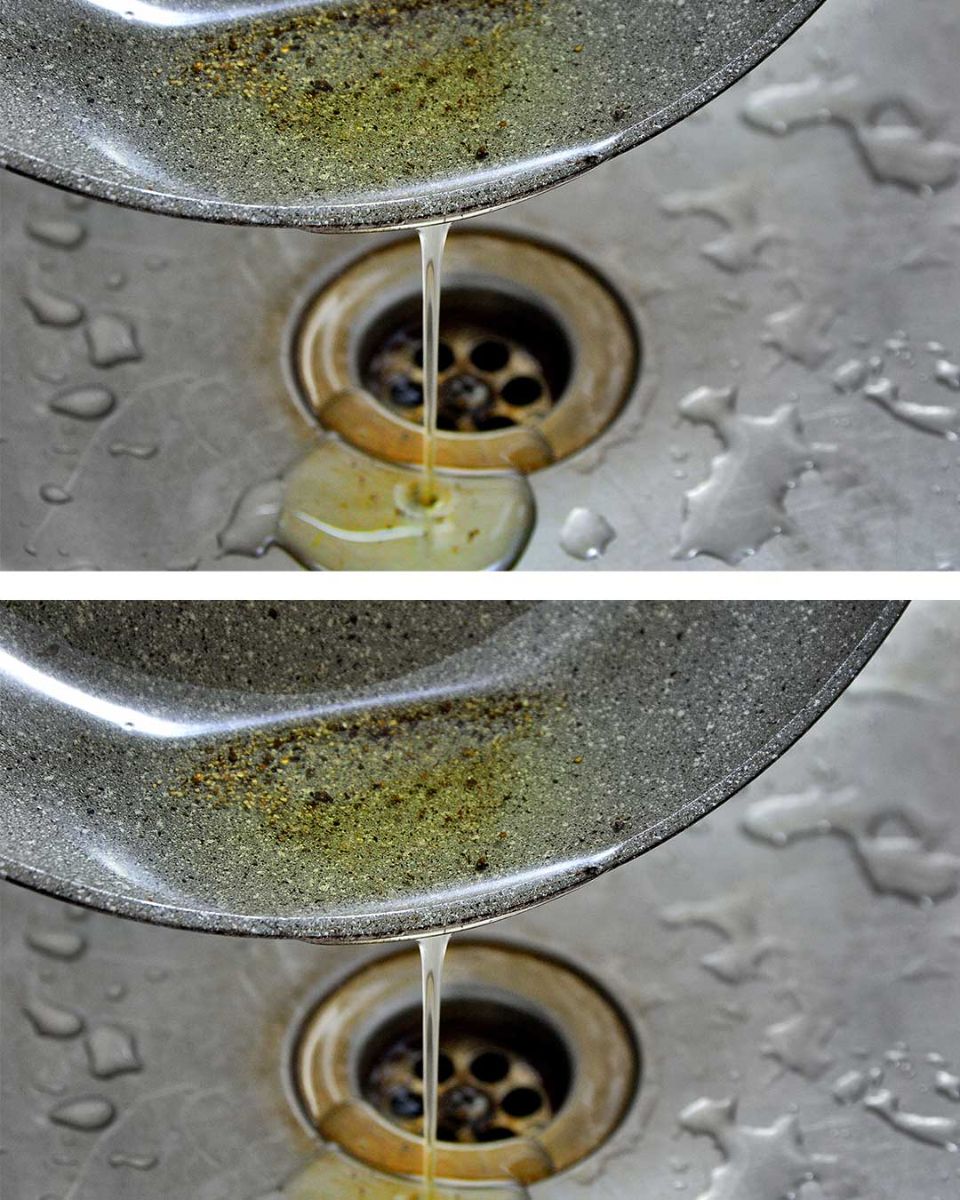Any regular culinary enthusiast should be versed in the nuances of oil disposal. The manner in which we discard cooking oils can have profound repercussions on our plumbing systems and the environment. Addressing the consequences of improperly disposed cooking oil—such as clogged pipes and disrupted sewage systems—can become quite costly. The accumulation of fats, oils, and greases (FOGs) poses a threat not only to local wildlife but also to wastewater treatment infrastructures.
If you’re uncertain about the proper method for disposing of cooking oil, this article aims to elucidate why pouring it down the drain is inadvisable. By the end, you will be equipped with the knowledge to discard food remnants in an environmentally conscious manner. This awareness benefits both your home’s plumbing system and the broader ecosystem.
Why You Shouldn’t Pour Oil Down the Kitchen Sink
- Clogged Pipes Cooking oil can cling to the insides of pipes, eventually leading to significant blockages. These obstructions can result in slow drains or more severe plumbing issues.
- Fatbergs When oil combines with other waste materials, it can form large, solid conglomerations known as “fatbergs.” These are composed of non-biodegradable substances such as oils, grease, and fats, which can severely damage municipal sewage systems, leading to costly repairs.
- Environmental Impact Improper disposal of oil can have detrimental effects on the environment. Overflowing sewage systems, clogged with oil, can release pollutants into nearby water bodies, endangering aquatic life and contaminating drinking water sources.

